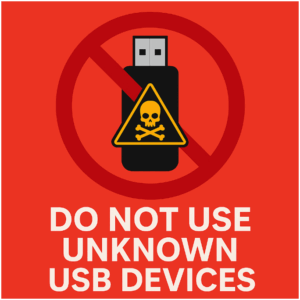In This Issue
Operations and Training: Daphne, AL; Casper, WY; Glenpool and Poteau, OK
Task Force Expedition XVII: Dallas, TX end-of-year deployment
First Annual Skully Awards: Belt promotions, Skullys, and Sponsor Recognition
OSINT Tradecraft: Pocket-Size OSINT Lab – USB Based Operating Systems
Who We Are
The Skull Games Task Force employs Open Source Intelligence to IDENTIFY sexual predators and their victims, enabling law enforcement to INTERDICT the cycle of abuse. Our mission is to liberate survivors and EMPOWER them with the opportunity for a life of hope, healing, and freedom. The Task Force provides direct support to law enforcement through small teams or as a massive expedition, bringing together the collective capability of more than 400 elite volunteers. This counter-sexual exploitation offensive leverages considerable expertise and resources to fight human trafficking and sexual exploitation. With us as the HUNTERS, we get into the heads of predators, in our own “SKULL GAME”…
October Operations and Training Recap – October 2025
by Olinda Cardenas
- Predators Arrested: 20
- Victims Recovered and Offered Assistance: 23
- Individuals Trained in Countertrafficking: 290
In October, Skull Games strengthened its partnerships across the U.S. by delivering mission-critical training and operational support to agencies confronting human trafficking in their own communities. Each engagement this month turned preparedness into measurable action, equipping officers, disrupting exploiters, and bringing help to the vulnerable.
Daphne, Alabama
Skull Games partnered with local agencies across Baldwin County for an intensive one-day training followed immediately by a joint operation. Officers applied the OSINT-driven techniques taught earlier that same day, demonstrating how quickly data and training can translate into field impact.
The results were nothing short of impressive and demonstrated the effectiveness of the training:
- 2 arrests for exploiting adults
- 2 arrests for exploiting minors
- 2 victims recovered and a third identified
- 1 trafficker identified and case built for local arrest
- 1 trafficker identified (currently incarcerated in prison), linked to a broader multi-state network
- 1 child buyer found in possession of narcotics
Participating agencies included Daphne PD, Fairhope PD, Spanish Fort PD, Saraland PD, and Pascagoula PD, reinforcing strong interstate collaboration. This rapid “train-then-operate” model underscored how prepared teams can move within hours to disrupt exploitation hidden along hotels and interstate corridors, areas traffickers rely on for anonymity and mobility. We extend our sincere appreciation to The Little Tree Project for their partnership in bringing this training and operation to the area. Our continued thanks also go to DATAPILOT, whose mobile forensic capabilities provide vital on-scene support and significantly accelerate investigative timelines.
Casper, Wyoming
Skull Games Solutions expanded its reach into Casper, Wyoming, where our team supported ongoing efforts to confront exploitation in the region. Working alongside the Casper Police Department, we joined officers who had already been actively pursuing traffickers and individuals preying on the vulnerable. Their focus and dedication set the tone for the engagement, and our role was to reinforce the work they were already driving forward.
Our collaboration with DATAPILOT also played an important part. Their mobile forensic tools enhanced the investigative process and provided officers with capabilities that helped strengthen casework. We appreciated the consistent support from Sean Walker, whose commitment to this mission has been evident throughout. This effort in Casper showed what is possible when investigators, technology partners, and mission-driven organizations combine their strengths toward the same goal: reducing harm and closing the space in which exploiters operate.
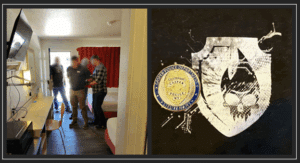
Glenpool, Oklahoma
Skull Games Solutions supported a multi-agency operation targeting individuals who arrived at a local hotel with the intent of exploiting vulnerable victims. The five (5) individuals intercepted included a lead pastor, a firefighter scheduled to be married the next day, a business owner who traveled across state lines to meet a minor, a business trainer, and a school district finance manager, clear proof that exploiters often look like everyday people.
This operation highlighted a hard truth: some people who should know better continue to choose exploitation. But it also showed something stronger, the dedication of the officers, investigators, and professionals who refuse to let that harm go unanswered. Skull Games Solutions was grateful for the opportunity to support this mission and stands firmly with the teams who continue to defend the vulnerable.
Poteau, Oklahoma
Lastly, Skull Games brought an “Applied OSINT for Investigations” training to Oklahoma, equipping officers with tools they can put to work immediately. Partnering with LeFlore County Women’s Crisis Center, who hosted the training, and Poteau KTC, for providing a classroom that made the weeklong training possible.
Partnerships like these, between investigators, community organizations, training teams, and the people who open their doors so learning can happen, are what keep this mission moving forward. Every hour of training and every operation carried out strengthens the line that protects the vulnerable and pushes exploitation further into the light.
Task Force Expedition XVII – Dallas, TX
by Olinda Cardenas

The Skull Games Task Force deployed to Dallas, Texas, for the final expedition of the year. From the Banner House at T Bar M, OSINT analysts and cell leaders worked around the clock, targeting 17 persons of interest and identifying 29 potential victims for recovery. While Dallas served as the operational hub, the scope expanded far beyond Texas. Intelligence cells pushed leads across nine states, including Oklahoma, Oregon, California, Louisiana, Alabama, Mississippi, Ohio, Tennessee, and Illinois, demonstrating how trafficking networks stretch across state lines, and how coordinated intelligence can disrupt them at scale.
This expedition also marked another milestone in leadership. As a returning Cell Leader, I had the opportunity once again to guide a cell team of analysts through structured investigative processes, ensured data quality, and helped turn fragmented indicators into actionable intelligence. Working alongside exceptional professionals in the intelligence and law-enforcement communities, Skull Games applied a blend of open-source intelligence, technology platforms, and collaborative analysis to track predators, develop leads, and support victim recovery efforts. The intelligence generated this weekend will move agencies toward finding victims, restoring survivors, and holding traffickers accountable.
Closing Out the Year
Expedition XVII also served as the closing chapter for this year’s operational cycle. The weekend concluded with an end-of-year awards ceremony, honoring volunteers, Skull Games Solutions leaders, and partners who carried the mission forward throughout 2025. The ceremony recognized excellence across remote and in-person expeditions, celebrated milestones in victim identification and trafficker disruption, and highlighted the impact of volunteers who consistently showed up, trained hard, and delivered results.
First Annual Skull Awards – Dallas, TX
by Olinda Cardenas

To close out Expedition XVII, the Task Force gathered in Dallas for the first annual Skully Awards, an evening that celebrated the people who make this work possible. It was a mix of formal awards ceremony and family gathering, with Skull Games leadership presenting awards in person and virtually to volunteers around the country.
The Belt Tradition
The Skull Games belt system is a time-honored tradition stemming from when leaders Michal Block and Jeff Tiegs practiced jiu jitsu together while living in Israel. They wanted a way to recognize progression, responsibility, and mastery inside the Task Force.
- White belt marks completion of initial training. You cannot hunt until you reach white belt.
- Blue, purple, and brown belts reflect increasing levels of experience, trust, and responsibility on operations.
- Black belts are the masters of the craft, the OSINT “unicorns” of the Task Force.
Belts and promotions are displayed online so the community can see who has stepped into new levels of commitment and leadership.
Belt Promotions
This year, the Skully Awards recognized a significant wave of progression through the ranks:
- We promoted eight hunters to blue belt. Including our Skullery author Olinda Cardenas.
- We promoted one hunter to purple belt.
- We promoted four hunters to brown belt.
- We promoted two hunters to black belt, formally recognizing them as senior leaders over the Task Force and Fusion Cell.
- We awarded two orange belts for outstanding mission support, including Skullery author Tom Phelan.
Paper Plate Awards
The night also included a set of more light-hearted, bordering ridiculous Task Force awards that highlighted the culture of the team:
- A Word Count Warrior award for the analyst who logged the most posts in the group chat.
- A Sound of Silence award for the OSC who spent the most hours alone in video meetings accompanied mainly by elevator music.
- A Sunday Runway Model award for the best Fusion Cell Sunday costume photo as “the Sheriff.”
- The Alias of Absurdity award for a teammate who received a nickname driven by their diet similar to that of our Task Force mascot, Arrow the German Shepherd.
Names were less important than the reminder that behind all the serious work there is a tight-knit community that laughs together and looks out for each other.
Official Skully Awards
The inaugural official Skully Awards recognized standout contributions across the mission:
- Trailblazer of the Year – Ashleigh Brady
- Torchbearer of the Year – Bill Cronin, known to many as Wild Bill
- Mentor of the Year – Devon Blake
- Law Enforcement Partnership Award – Travis Saulsbury
- Society Member of the Year – NexTech Solutions
- Legacy Builder of the Year – Mr. John Rochon
Each award pointed to a different way people carry the mission, from pioneering new ideas and keeping the fire lit, to mentoring others, deepening law enforcement partnerships, strengthening the Society, and investing in the long-term future of Skull Games.

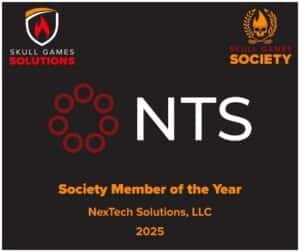

Honoring Our Sponsors
The Skully Awards also created space to thank the sponsors who stood behind the mission all year:
- Black Rifle Coffee Company, keeping teams and events fueled.
- Rochon Family Foundation, building and sustaining the infrastructure behind expeditions and training.
- M42 and NTS, providing advanced technology and facilities that amplify every analyst’s effort.
Awards and thanks were delivered in person and digitally by Skull Games leadership, including Jeff Tiegs, as a deliberate way to show appreciation. The sponsors stand behind the volunteers, the volunteers stand behind law enforcement, and together they stand between traffickers and the people they exploit.
OSINT Tradecraft
Pocket Labs: A Portable OSINT Setup You Can Launch Anywhere
by Tom Phelan
Let’s say you are working on investigations at your home computer setup. One browser has your bank account, personal email, maybe your kid’s school portal open. Another has your investigation with escort ads, sketchy messaging sites, maybe dark web scraping. Content you do not want crossing over with your real life. There are multiple ways to separate these between isolated browsers, desktops, hardware, or virtual machines. These options can get complicated and confusing.
Next you’re on the road with a cheap travel laptop on hotel Wi-Fi. A new lead drops. You don’t have your home setup or your normal tools. You can either improvise and hope nothing leaks into your personal world, or you can plug in a USB drive, boot a completely separate environment, and hunt from there. Skull Games hunters are increasingly opting for a pocket-sized OSINT lab that lives on a USB drive and spins up on any computer.
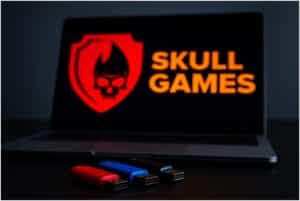
What a “Pocket Lab” Actually Is
A “live-boot operating system” sounds complicated but is simple after the initial setup.
- You put a special version of an operating system on a USB drive.
- You restart your computer and tell it to start from that USB instead of the normal hard drive.
- Designed for privacy, the system runs in your computer’s memory and avoids writing to the internal disk unless you explicitly tell it to.
- When you shut it down and pull the USB, that session is gone.
Most of these systems also let you set up a small encrypted storage area on the USB so you can keep a few things—bookmarks, notes, a reference PDF—without leaving anything on the laptop itself. So instead of trying to bolt “investigator mode” onto your everyday laptop, you carry a separate workspace on your keychain and only plug it in when it is time to hunt.
Why Bother?
Is it extra work? Yes. Is it worth it? Also, yes. A portable lab does a few important things for you:
1. It keeps your worlds separate.
In law enforcement or the military you would have the infrastructure to have your work on a separate computer, in a secure facility, and secure network. If you are doing OSINT from home you want to separate your banking, family photos, and work in one environment; your sock puppets, case notes, and dark research in another. You don’t have to worry that a stray cookie or auto-fill from your personal profile will bleed into your investigative work.
2. It maintains privacy and security.
If you use a live system built for privacy, most of what you do lives in RAM and disappears at shutdown. Meaning your data is less likely to be baked into every machine you touch. If it runs on the Tor browser network your browsing is also untraceable.
3. It gives you a consistent setup anywhere.
Home, hotel business center, internet cafe—it doesn’t matter. If the computer can boot from USB, you can spin up the exact same environment with your tools and data.
4. It’s cheap and simple.
No extra laptop. No special hardware. Just a decent USB drive formatted properly. It’s an elegant solution one of our hunters once pitched to the group, after noticing Skull Games mostly collaborates on investigations: “If our work product lives elsewhere, why not treat the laptop as a disposable shell and carry the real workspace on a stick?”
What People Actually Use for Portable Labs
There are a lot of options out there. You don’t need to know them all. Here are the main families you’ll see OSINTers talk about:
Privacy-focused live systems
These are built to minimize traces and route traffic through safe channels by default.
- Tails – A live operating system designed to run from USB, route all internet traffic through Tor, and avoid touching the host computer’s hard drive unless you explicitly configure it to. It also supports encrypted storage on the USB for the small things you do want to keep.
- Kodachi – A privacy-oriented system that layers a live OS with built-in VPN + Tor routing and local encryption tools.
- Septor – A live system built around Tor and privacy tools like VeraCrypt and cache-clearing utilities.
These are good when your top priorities are privacy and “don’t leave a mess behind.”
Security “toolbox” systems with live mode
These are more like portable workbenches full of tools.
- Kali Linux – A security distribution loaded with analysis and testing tools. It can run as a live USB and supports persistence and encrypted persistence.
- Parrot OS – Offers both a regular desktop edition and a security edition, both of which can run live from USB.
These make sense if you’re already comfortable with Linux and want a heavier toolbox. If you just need a safer browser and a sane way to separate work from life, the privacy-focused crowd is usually enough to start with.
Building Your First Lab
You don’t have to be “the tech person” to set this up. Here’s a straightforward path:
1. Get a decent USB drive.
Pick a reputable brand (SanDisk, Samsung, Kingston, etc.), 32 GB or more, with USB 3.0 or better. Set it aside and don’t use it for anything else.
2. Pick one system to try.
Don’t overthink it. Choose one of the privacy-focused live systems (Tails, Kodachi, or Septor) or, if you know you need a full security toolbox and are comfortable tinkering, something like Kali or Parrot.
3. Follow the official instructions.
Go to the project’s official site, download the image, and follow their “Install to USB” guide for your operating system (Windows, macOS, or Linux). They walk you through it step by step.
4. Boot into the lab.
Plug the USB into your laptop. Restart. As the computer boots, hit the boot-menu key (often F12, F10, Esc, etc.) and choose the USB drive. Wait for the portable OS to load.
5. Decide what to keep.
If the system supports encrypted persistence, use it to create a small, encrypted space on the USB. Keep it lean: bookmarks, a few reference docs, maybe a text file with case templates. Let everything else vanish at shutdown.
6. Use it as your OSINT space.
Do your hunting and research from this environment. When you’re done, shut it down from the menu, unplug the USB, and go back to your normal OS for normal life.
Tips and Tricks
The operating system you choose is important, but your habits are what make this work:
- Never plug in mystery USBs. If you didn’t build it, don’t trust it.
- Label your lab drives. Tape, marker, colored key ring, heat shrink wrap—whatever it takes so you never confuse it with a random storage stick.
- Treat labs as disposable. If a USB ever feels “burned”—you used it on a questionable machine, made a mistake with accounts, or just have a bad feeling—retire it and build a new one.
- Keep a spare. Lab drives fail at the worst possible times. Having a second one prepped lets you keep going.
Portable operating systems won’t fix sloppy tradecraft or bad decisions. But they give you a simple, tangible way to put a wall between your real life and the dark corners of the internet you have to walk through for this work. OSINT isn’t the only use case for this either! You can use this tradecraft for your personal privacy and convenience. Tails OS even lists a use case for victims of human trafficking and domestic violence to use this tradecraft to protect their privacy from abusers. For the cost of a thumb drive and an afternoon, you get a safer, cleaner way to browse.
Upcoming Events
- Task Force Expedition XVIII | January | West Virginia
Skull Games Links
- Social Media: Follow Us Linkedin Facebook Insta Twitter
- Donations: Support Us
- Law Enforcement: Partner With Us
- Volunteer: Join Us
About the Author

Tom Phelan is an active-duty U.S. Army Intelligence Officer with over five years of experience in OSINT and a dedicated volunteer for Skull Games Task Force.

Olinda Cardenas is a former crime scene investigator turned cybercrime enthusiast. She specializes in OSINT and financial crime investigations and is a dedicated volunteer with Skull Games


